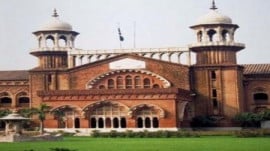
In an interview at his Bath Island home in Karachi more than five years ago, Ambassador Marker shared many such anecdotes with me. Hopefully, they will find a place in his new book. History is about people in power and how they ruled. Who better to write about Pakistan than this great man who served two presidents, seven prime ministers, three chiefs of army staff and many foreign ministers?
Today, it’s Siegel’s word against former president General (retd) Pervez Musharraf’s. Siegel had, earlier, refused to testify against Musharraf despite being asked to do so several times. Now he has come out with what Benazir said to him regarding Musharraf’s threats and warnings not to return to Pakistan. The timing of Siegel’s testimony, according to some crystal-ball gazers is not without motive. “I think it’s a red herring!” a veteran who has rubbed shoulders with many a VVIP in Islamabad emailed me. “It’s Asif Zardari’s brilliant idea to get Siegel to testify now. The plan is to deflect the military’s attention away from the PPP leader sitting in Dubai, who perhaps fears that the accountability dragnet is closing around him.”
Another wannabe analyst suggests that it is a cool way to embarrass the establishment bigwigs. Benazir’s close confidante, whom she hired to lobby for her in Washington when she was prime minister during both her tenures, is openly pointing fingers at Musharraf’s involvement in her assassination. It is a most serious charge. “Anything is possible in the land of the pure where money flows from the coffers of the corrupt to get people to testify falsely,” continues the analyst.
Siegel had no reason to be present at meetings where classified information was discussed during Benazir’s state visit to Washington in the summer of 1989. There were state secrets only meant for certain ears. Certainly not for an American lobbyist’s ears! Small wonder then that Ambassador Marker’s frustration and anger made him want to quit.
How about calling Ambassador Heraldo Munoz to testify? Remember him? He headed the UN investigation commission set up by then president Asif Zardari. Munoz and two other ‘experts’ produced a voluminous report titled: “United Nations Commission of Inquiry into the facts and circumstances of the assassination of former Pakistani Prime Minister Mohtarma Benazir Bhutto”. The report failed to nail the “perpetrators”, but it did in its conclusion lay the blame on the federal and provincial governments asserting, “Security arrangements for Ms Bhutto were fatally insufficient and ineffective.” The Pakistan government spent millions on the UN report but the findings left many crucial questions unanswered. The then foreign secretary, Riaz Mohammad Khan, lost his job because he strongly advised President Zardari against seeking the UN’s help as it would serve no purpose.
If Siegel can be called to the witness stand, then why not Ambassador Munoz? I wonder how many Pakistanis have read his so-called mystery thriller Getting Away with Murder: Benazir Bhutto’s Assassination and the Politics of Pakistan. I have not read it. But here’s what two people who read the book have to say: “I found this a quick and fascinating read. Fingers pointed in many directions — mostly higher-up Pakistani officials and, of course, the hateful extremist groups. Good insights, though the rather hazy conclusions of the report was a bit disappointing in the end.”
Another person wrote: “The book is no doubt well-researched. I bought this book to get to know who assassinated Benazir Bhutto. I was disappointed to learn that this commission was not to establish this.”
Published in The Express Tribune, October 9th, 2015.
Like Opinion & Editorial on Facebook, follow @ETOpEd on Twitter to receive all updates on all our daily pieces.












































COMMENTS (1)
Comments are moderated and generally will be posted if they are on-topic and not abusive.
For more information, please see our Comments FAQ